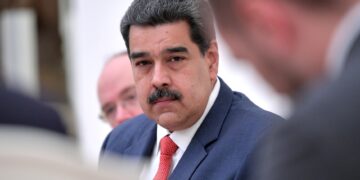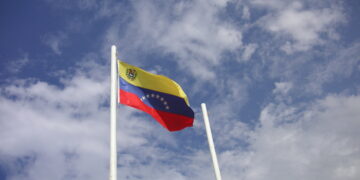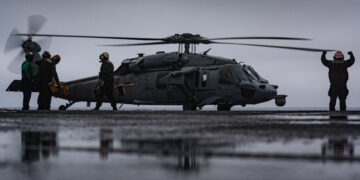October 17, 2025
Pushing regime change in Venezuela is a terrible idea
FOR IMMEDIATE RELEASE:
October 17, 2025
Contact: press@defensepriorities.org
WASHINGTON, DC—In response to the U.S. military buildup in the Caribbean, part of an escalating U.S. campaign to exert pressure on Venezuela, Defense Priorities Director of Military Analysis Jennifer Kavanagh issued the following statement:
“After pledging to avoid costly wars of choice, the Trump administration appears primed to repeat the mistake of its predecessors. In recent weeks, Washington has increased the U.S military posture near Venezuela and escalated its military pressure on the South American country. Nearly 10 percent of U.S. naval power, F-35 fighter jets, special operations forces and intelligence agents, and 10,000 soldiers are currently in and around the Caribbean region, while B-52 bombers have been spotted nearby. Mr. Trump has already authorized the use of these military forces. Dozens of people have been killed in multiple U.S. air strikes on alleged drug smuggling boats and CIA operatives may already be on the ground in Venezuela.
“Though the administration frames its operations as part of a ‘war on cartels,’ the military buildup suggests more far-reaching goals including a potential regime change intervention that drives President Nicolas Maduro from power.
“Sending U.S. military forces or intelligence agents into Venezuela or striking the country directly with air and naval assets to force a change in leadership would be a terrible mistake that could drag the United States into a drawn-out conflict that harms U.S. interests.
“Washington might hope for friendlier, more cooperative leadership in Caracas, but neither Venezuela nor Maduro pose a direct threat to the United States. Contrary to the Trump administration’s narrative, Venezuela is not a major player in the fentanyl trade nor is there evidence that the country’s government is closely tied to the gangs and cartels that operate in the region. The United States could stay safely uninvolved in Venezuela and its domestic politics without putting our own security at risk.
“Moreover, even if Venezuela were to pose a threat to the United States, precipitating a regime change with military force or covert action is unlikely to ameliorate the situation or advance U.S. interests. The United States spent the 1970s and 1980s meddling in the political affairs of countries across the Western Hemisphere and the 2000s doing the same in the Middle East. The results were abysmal. Although the United States sometimes succeeded in removing leaders it did not like, it consistently struggled or outright failed to establish the thriving democracies policymakers hoped for. Regime change interventions often created new adversaries and left local populations worse off. Iraq and Afghanistan stand as the clearest evidence of past U.S. failures, but countries across South America also suffered. An intervention in Venezuela is likely to produce similarly bad outcomes.
“The Trump administration is right to prioritize U.S. engagement in the Western Hemisphere in its foreign policy. But as it ‘pivots home,’ renewed attention to America’s backyard should not be only or primarily military in focus. Instead, Washington should concentrate on economic investment, diplomatic partnerships, and law enforcement activities to protect U.S. land and maritime borders. These are not jobs for the U.S. military which has enough demands and commitments already.
“Mr. Trump should stick to his promise to the American people and keep U.S. forces out of reckless military adventures abroad.”
More on Venezuela

Featuring Gil Barndollar
September 17, 2025

February 28, 2025


